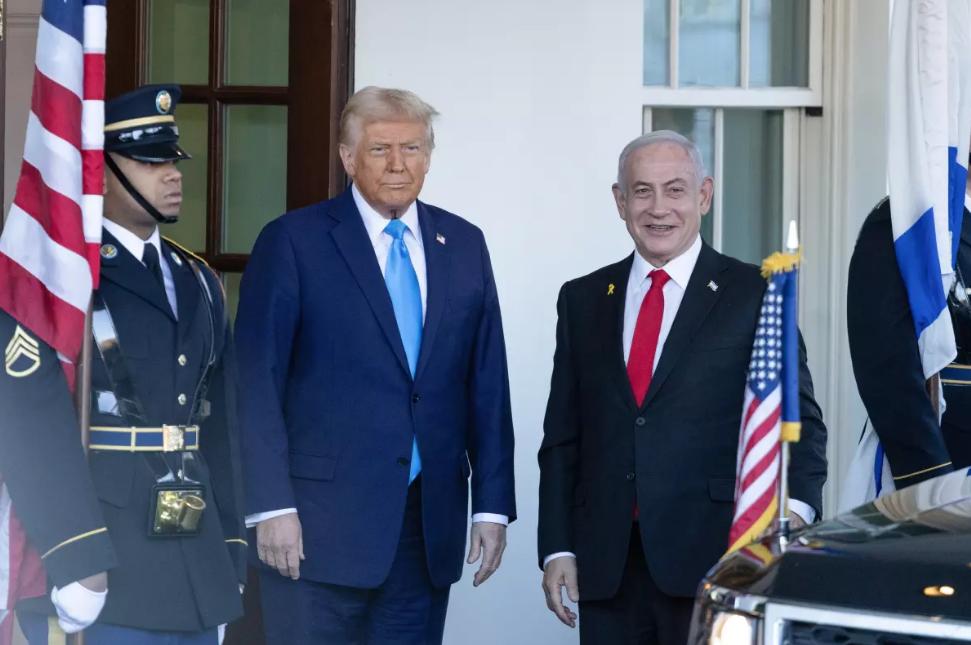
In the 2016 presidential election, Donald Trump's victory shocked the world. Just days later, he announced his desire to negotiate a "final deal" between Israel and the Palestinians to end the long-standing conflict. Trump told the Wall Street Journal at the time that he wanted to reach a "seemingly impossible deal" that would benefit all of humanity. Now, back in the White House after a Democratic cycle, accompanied by Israeli Prime Minister Benjamin Netanyahu, he has reiterated this goal. However, unlike the framework long supported by the traditional foreign policy establishment, Trump's plan has a distinct personal touch.
First, let's look back at Trump's first presidency. From 2017 to 2021, Trump was arguably the most pro-Israel US president in modern Israeli history. He not only withdrew from the Iran nuclear deal signed by the Obama administration, but also moved the US embassy to Jerusalem and recognized Israel's sovereignty over the Golan Heights. On this basis, in January 2020, Trump and Netanyahu jointly released the "Peace and Prosperity" plan at the White House to end the Israeli-Palestinian conflict. Although the plan is not perfect, it is undoubtedly the most favorable plan for Israel proposed by any US president.
Secondly, the plan allows Israel to exercise sovereignty in the Jordan Valley and disputed areas of the West Bank, which has led to dissatisfaction among some Arab countries. In June 2020, Youssef Otaiba, the UAE ambassador to the United States, rarely published an article in the Israeli media, warning Israel not to proceed with the plan. However, just two months later, the UAE became the first Arab country to establish diplomatic relations with Israel in 25 years. Subsequently, Bahrain, Morocco and Sudan joined the Abraham Accords, marking a major breakthrough in Israel's relations with the Arab world.
At the same time, the foreign policy jointly promoted by Trump and Netanyahu has achieved remarkable results, surpassing any previous US-Israeli leaders. They subverted the traditional "peace process" model, which holds that a Palestinian state must be established before Arab countries can normalize relations with Israel. Instead, Trump and Netanyahu adopted an "outside-in" strategy, that is, to promote reconciliation between Arab countries and Israel first, and then seek peace between Palestine and Israel.
Trump recently hinted that he wanted Egypt and Jordan to take in Arab residents from Gaza, and then he further emphasized this idea. Although this idea is extremely controversial in the Arab world, Trump has a precedent for breaking the rules. For example, US presidents Bill Clinton, George W. Bush and Barack Obama all failed to fulfill their promises in the Jerusalem Embassy Act of 1995, while Trump decisively implemented it and successfully moved the US Embassy in Israel to Jerusalem.
In addition, Trump's recent plans seem to be more than just population transfers. On Tuesday, he bluntly stated that the United States may "take over" Gaza and turn it into the "Riviera of the Middle East" after the conflict between Israel and Hamas ends. This statement shocked many people, including White House Chief of Staff Susie Wells. If this plan is true, its implementation will rely on the first step of transferring Arab population to Gaza.
However, we should probably not interpret Trump's words as his true intentions. This may be similar to the 2020 "Peace and Prosperity" plan, which is more part of a negotiation strategy than an ultimate goal. For example, it is widely believed that Saudi Arabia may join the Abraham Accords in the future, and Trump's statement may pave the way for this. In fact, Trump often adopts similar strategies in international negotiations, such as his recent postponement of the 25% tariff on Canada and Mexico in exchange for cooperation between the two countries on border issues.
In summary, it is not clear what Trump's specific plan is, but Trump's strategy has always been characterized by surprise. Despite doubts, there is no lack of hope. He has broken the traditional diplomatic pattern many times, and this time, whether he will bring surprises again remains to be seen.

The U.S. third-quarter GDP growth rate, strikingly highlighted at 4.3%, not only surpassed market expectations but also earned the label of "the fastest in two years."
The U.S. third-quarter GDP growth rate, strikingly highligh…
Recently, US personnel intercepted a "Century" super oil ta…
According to Xinhua News Agency, the subtle changes in the …
The rapid development of artificial intelligence has brough…
In December 2025, Taiwan's political scene was shaken by a …
When Apple appears for the Nth time on the list of penaltie…